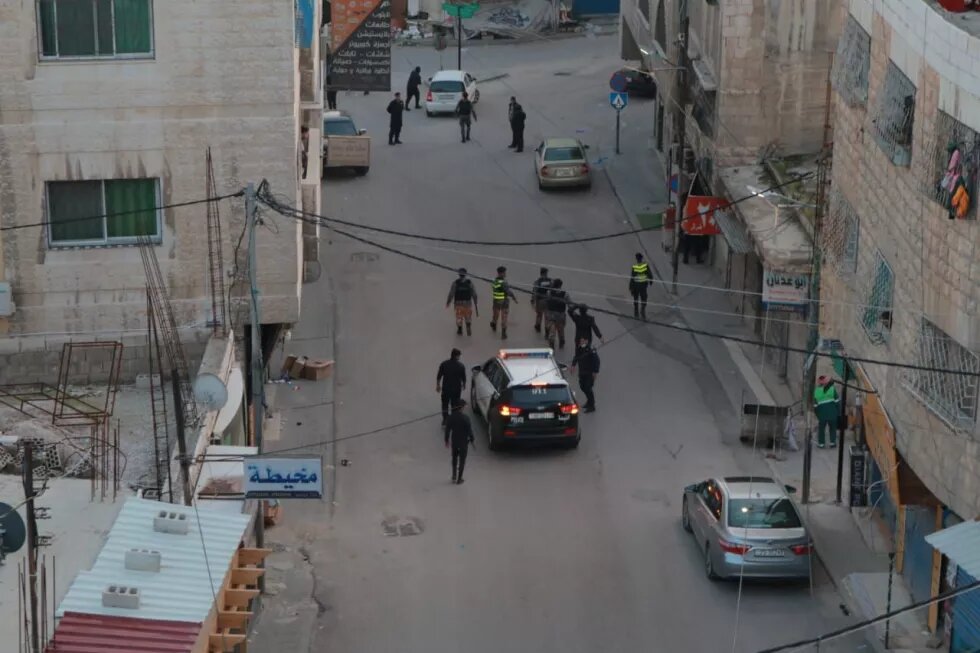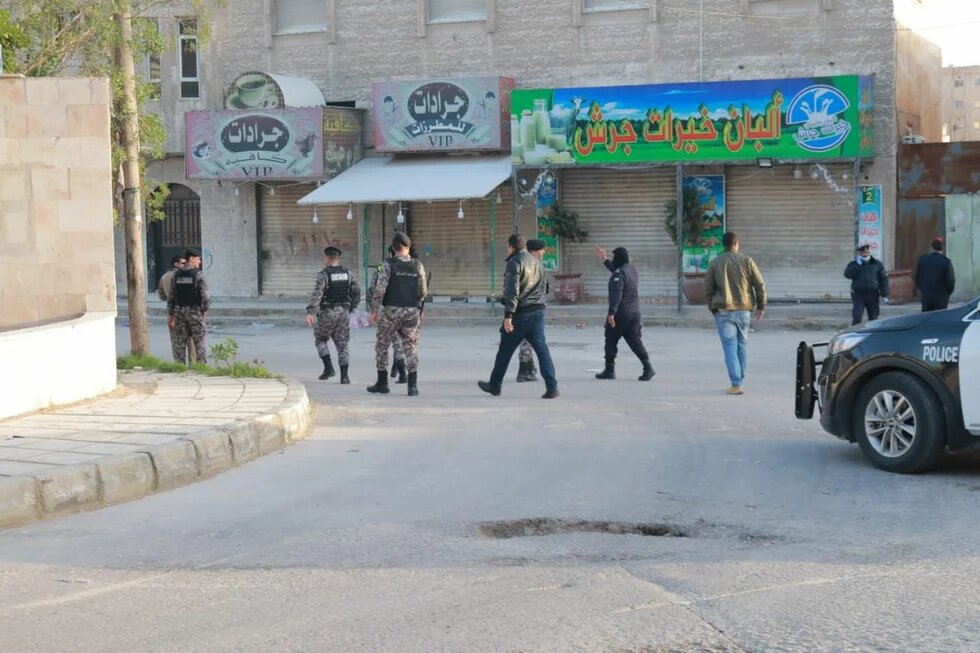

By: Lara Kirchner
In order to curb the spread of the novel Corona virus, Jordan has enforced one of the strictest lockdowns in the world that has forced all citizens to stay indoors and temporarily even saw groceries and pharmacies shut. Jordan’s measures seem tough; however, strictly enforcing them might avert the country from the high fatalities that many other states are facing.
At 7 AM on March 21st, 2020 the sounds of long-lasting sirens went off throughout all cities in Jordan, signaling to citizens the beginning of a nation-wide curfew. The measure, which was announced a day earlier by Jordan’s Prime Minister Omar Razzaz has forced Jordan's ten million citizens to stay at home. By the evening of first day of the curfew, 392 arrests were made for violators of the curfew who now face charges of imprisonment for up to one year (1). Just a few days earlier, King Abdullah II had declared a state of emergency. He has since, been able to rule the country under martial law, which had not come into force since its abolishment in 1992. In many countries, the curfew is the last resort to curb the virus from spreading. In light of the relatively low number of confirmed COVID-19 cases in the Hashemite Kingdom at this time numbering 85, this vigorous action seemed rather disproportionate, considering that in Europe these measures were only enforced when case numbers reached a four-digit range, if at all. Similarly, prior measures taken on March 26th to close the borders with Palestine, Israel, Syria, Iraq and Saudi Arabia seemed to be rather drastic. The same closure applied to airports. Passengers who were still arriving that day or the day after were taken via military vehicles to hotels in Amman and on the Dead Sea, which were turned into quarantine sites overnight. Although, these were 5-star hotels that were dedicated for 14-day stays free of charge, it does not seem to be a particularly luxurious stay considering that leaving one’s modestly sized room is not possible at all.
The announcement of the curfew coming into effect only a day later had caused panic among citizens. Numerous people used the remaining hours to push their way through bakeries and supermarkets to obtain essential goods. The universal preventive measure of physical distancing seemed to have been momentarily forgotten and might prove to be a lesson to be learned by the Jordanian government in terms of short-term announcements and their effects.
While Jordan initially imposed drastic measures, specific solutions were quickly offered to minimize the economic burdens of the crisis on society. For instance, Prime Minister Razzaz reduced the social security contributions that companies have to pay for their employees from 21.75% to 5.4% for the next three months (2). This comes as a relief to companies that can now maintain some liquidity and are able to continue to pay salaries. The government is gaining further confidence in its measures through its transparent approach to handling the crisis. All measures taken are justified as corresponding to the recommendations of the World Health Organization (WHO). In order to make further decisions, the ministers meet daily for consultations. If necessary, the Prime Minister or the King make public announcements, but mostly, the population hears from the Jordanian Health Minister Saad Jaber, who disseminates information daily without exaggerating or understating the current situation. Every evening he appears on television announcing the latest corona case numbers in Jordan using simple language that provides information and recommendations for the people. He also highlights the situation of other countries and warns of what could happen if no action is taken or if action is taken far too late. In the past weeks, the Minister of Health seems to have become Jordan's rising star on the political horizon, who, should he even be appointed Prime Minister after the upcoming parliamentary elections, would certainly attend to his new office with a lot of bonus points and a high reputation among the general population. In fact, Jordanians' confidence in their government and its handling of the crisis is further substantiated by the financial support it receives from various sectors. Among the largest donors to step up were the directors of the Arab Potash Company, who donated a total of 3 million Jordanian dinars (a bit over 3.8 million Euros) to the Ministry of Health; Hikma Pharmaceuticals company promised to provide medicine worth two million Jordanian dinars (2.55 Million Euros); and individual judges donated a total of 100,000 Jordanian dinars (127.6 K Euros) to the same ministry (3).
The strict curfew lasted four days. After that, some grocery stores and bakeries were allowed to reopen and citizens since are permitted to leave their home to purchase necessary goods. However, outings are reduced to urgently needed purchases from the nearest supply point and only between 10 am and 6 pm. The use of one's own car is only allowed to those who have the appropriate permit. Compliance with these regulations is strictly controlled by the police and military. In case a larger number of violations or chaos is detected at any of the supermarkets or bakeries, the government will not shy away from announcing and enforcing another strict curfew.
In order to prevent further panic, the government has declared that it had sufficient reserves of essential goods, especially food and gas, despite of its heavy dependence on imports in these areas. However, availability most likely applies only to those people who can afford to buy these goods in general. Jordan has ten million inhabitants, but only seven million of them have Jordanian citizenship. The other three million are either refugees mainly from Syria and Iraq, migrant workers or Palestinian nationals. While some refugees are able to take care of themselves or receive enough aid to do so, many others do not. As of now, the state does not offer any additional aid for them. Numerous migrant workers who came to Jordan for economic reasons are now largely facing unemployment. Most of them already face precarious working conditions, mostly employed only in the informal sector. To a large extent, they depend solely on their daily wages. For them, it is now questionable how they will afford to live without a daily income and more importantly whether they will be able to return to their previous jobs. Although companies and employers are legally obliged to register their employees in the social security system and pay the respective contributions, only a small number of migrant workers are actually registered. This is due to legal gray areas, which make it easy to avoid the registration of non-Jordanians in the social security system.
The curfew can become precarious not only for those who depend on their daily wages, but also for those who experience domestic violence. In Jordanian society, domestic violence is one of topics that is not openly debated. Yet, many people are affected by it, among them especially women and children. Non-governmental organizations fear that the number of cases of domestic violence will increase rapidly during the curfew, with those affected literally being trapped. In other words, they may be prone to violence while inside and facing imprisonment if caught outside in violation of the curfew. A few non-governmental organizations have been maintaining telephone hotlines for a long time to offer help and, if necessary, legal assistance to those affected. For instance, a partner organization of the Heinrich Böll Foundation, Jordanian Women's Union (JWU), maintains a shelter for victims of domestic violence and human trafficking. Although the telephone hotlines remain active even during curfew, providing physical protection is becoming more and more difficult and requires extensive coordination with the local authorities.
The Kingdom has seen a variety of political challenges in recent years. The past few years witnessed a dissatisfaction by citizens over the lack of economic stability and high unemployment rates, which was expressed through numerous demonstrations. Prime Minister Razzaz's cabinet has seen four reshuffles since his inauguration in June 2018, and may express the many failed attempts to provide decent political solutions to societies’ expressed demands. Remarkably, the government’s current handling of the crisis seems to restore some of the lost confidence. The drastic measures of the imposed curfew were met with widespread understanding and acceptance in society – although the government foresees harsh punishments for those in violation of the curfew. It seems that Jordanians are gaining a new sense of national belonging and are starting to feel a certain pride to have a government that is as able and capable of stopping the spread of the virus as only a handful of other countries. In Europe, people are standing on their balconies and applauding medical workers. A few days ago, Jordanians stood on their balconies and applauded the military and police for their service. In doing so, they underlined their confidence in the state and its ability to act.



